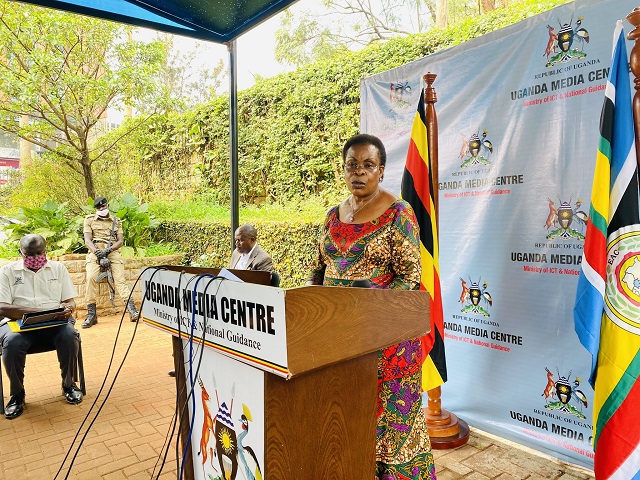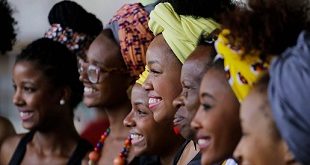
Why the goal to eliminate corruption is delusional, self-deceptive, and downright hypocrisy
THE LAST WORD | ANDREW M MWENDA | In 2002, Kenyans voted into power an opposition presidential candidate, thus ending President Daniel arap Moi’s 24 years rule which was seen by many as one of the most corrupt in Africa. The opposition campaigned on ending endemic corruption.
The new president, Mwai Kibaki, appointed leading anti-corruption campaigner, John Githongo, to lead the fight against corruption. Yet within two years, Githongo had run to exile fearing for his life as Kibaki’s corrupt gang closed in to kill him. Soon Kenyans realised Kibaki’s government was more corrupt than Moi’s.
Kenya is not alone. Every government in Africa has come to power promising to fight corruption and ended up more corrupt. From Zambia to Malawi, Ghana to Senegal, Nigeria to Benin, Ivory Coast to Liberia, the story of increasing corruption with changes of government is persistent across Africa.
Moralists attribute this persistence to evil people running the state. Yet I think the problem is largely structural – corruption is the most cost effective, cost efficient and affordable strategy of governing power relations in poor agrarian society.
Secondly, many Ugandan elites believe development (the process of transitioning from agrarian poverty to industrial affluence) is a moral journey led by self-righteous, altruistic and selfless leaders “who care about their people.” This belief is based on faith and goes against historic evidence.
Development as we know it today is actually capitalist development. Its basic driving force is individual greed, not collective virtue. At its core, market capitalism is premised on the belief that every person should go to the market and seek that which is to their best monetary advantage.
Adam Smith, the first philosopher to explain capitalism, argued that socially optimal outcomes would not come from the benevolence of individuals in the state but through the selfish activities of anonymous and greedy profiteers in the market. The regulator of individual greed would be market competition, working as though through an invisible hand.
Of course, we now know that the invisible hand is insufficient to regulate the market and direct it to serve the common good, hence the need for state oversight.
Nonetheless greed and selfishness are not always (and necessarily) bad for the public good. They can coexist with it and even help nurture it. The development of Uganda, or any society for that matter, does not require, as a precondition, achieving a utopia of honest and virtuous public servants.
But the religious impulse to development is strong. Many people argue that unless we eliminate corruption first, then sustained progress will be impossible to achieve. It is like saying that we need to end cheating in romantic relationships for marriages to work and deliver emotional bliss. Everyone reading this article (and I mean everyone) has cheated on their wife, husband, boyfriend or girlfriend many times. Where they have been caught or suspected, it has brought untold emotional pain and trauma to the victim. Yet in spite of this, romantic relationships continue to survive and even thrive (with their usual ups and downs of course) making our families function without being perfect. And so is corruption and economic progress.
Yet I believe governments should make all efforts to fight corruption. However, we need to look at fighting corruption as an endeavor without an end, a set of rhythms to be managed, a continuous struggle for improvement. It is not (and cannot be) a struggle to achieve perfection.
Uganda is a human enterprise. Its governance will forever be imperfect and a perfect Uganda is a utopia that cannot be achieved. A goal to eliminate corruption is delusional, an act of self-deceit, if not downright hypocrisy. Human beings are inherently greedy and dishonest, and governments have always been (and all over the world today still are) corrupt.
Beliefs in a morally upright state have their foundation in religion, especially the Christian faith. It promises an end-time when all the evils of the world would be ended after a titanic struggle between God and the devil, good and evil. God would emerge triumphant in this struggle and hence all sickness, death, famine, hunger, misery, war, conflict etc. would cease and humanity would achieve perfection. This conviction formed the foundation of President Yoweri Museveni’s struggle for power. No wonder NRM was originally called FRONASA (Front for National Salvation), the religious undertones (salvation) in its name were not there by mistake.
These apocalyptic beliefs in a perfect society are utopian. Museveni’s greatest achievement has been to outgrow them. He has thus been able to climb down from the treetops of utopia and stand firmly on the hard rock of reality. He has survived in power for long because he has grown to appreciate human frailty and imperfection. Some aspects of his old religious zealotry have remained, hence his belief that only born-again Christians can be honest public servants. But for the most part he has resigned to working with Ugandans as they are, not as he would wish them to be.
This is not an argument against efforts to manage and contain excesses of corruption. Neither am I saying our moralists should shut up. Rather it is caution against the extreme versions of this ambition. Unrealistic aspirations, when unmet, cause despair and emotional void. All countries have had high levels of corruption during their development process. Whether it is the USA before or China today, they did not seek a perfect state as a precondition for their transformation. Same for Uganda; we do not need an honest public sector as a precondition for sustained progress. That is a utopian dream, the pursuit of which should be left to the church, not the state.
We need to design rules and procedures that are relevant to our context. We can even decriminalise many actions which today are legislated as corrupt. Then government can create incentives for public servants to seek selfish ends through the pursuit of the common good. That was what Max Weber envisaged: a modern bureaucracy would offer long term career rewards; so that selfish interests would be achieved through the pursuit of collective goals. Good performance in the public sector would be rewarded with promotions in both status and income. These are the innovative incentives we need to be thinking about, not the perfection of human beings.
******
amwenda@ugindependent.co.ug
 The Independent Uganda: You get the Truth we Pay the Price
The Independent Uganda: You get the Truth we Pay the Price




Hi Andrew, you have for many years continued to misuse the word elite/elites in regard to a social class that is at best a nascent middle class. In fact the Ugandans you describe are something of the aspirational. Not elite at all. The Elite are the core establishment. The 1 percent.
But Andrew, unless you are admitting or suggesting that we are sub-human; what e.g. is utopian about Botswana? what is utopian about Singapore, South Korea, Malaysia, Indonesia, etc.? What is utopian about Japan, Norway, Finland and today China?
In my strongest opinion, a dishonest elite in a University, Parliament, Supreme Court, a government department, State House etc. is as savage as a street pickpocket or a highway bandit.
But fighting against corruption in Uganda is more challenging.
Andrew, dont you feel bad when resources meant to benefit the public through extension of quality services like water, health, education, electricity get misappropriated by corrupt individuals for their own benefit?
So, is it development when millions of dollars borrowed to construct say a public infrastructure are swindled and the quality of the intended utility is grossly compromised? Are you suggesting that we accept the current situation and go with that? Well, I totally disagree with you on this. However hard it maybe to fight corruption, measures need to be undertaken to curb it for our country to attain the much needed social economic transformation.
Mwenda’s brief from the regime is to desensitize Ugandans on the ills of corruption and mismanagement of state affairs. He wants us to believe that this is the way it is supposed to be. That it is utopian to expect values or morals from our leaders. That there is no leader capable of doing good and being just to all. That we cannot build an economy based on justice and shared prosperity. That a leader who embraces humanity cannot succeed in governing the country. He will contort and spew out all kinds of biased and subjective opinions (which he calls research) to hoodwink the unsophisticated. SAD
From your corner I think you don’t understand what corruption is.Shaka Zulu like all the warriors you have known made an entire career causing death and mayhem. It is the stuff warriors are made of but as you know the whole of his life he never understood the pain of death .It only started when he lost his mother and may be finally sunk in when his own kin brought it to him. Corruption is death to any functioning society and that is all. Most times I recall an old columnist Mzee F.D.R .Gureme in one of his articles he met the president and told him about corrupt people. If you read the article you will know why the corruption crusaders are barking the wrong tree.
Thank you